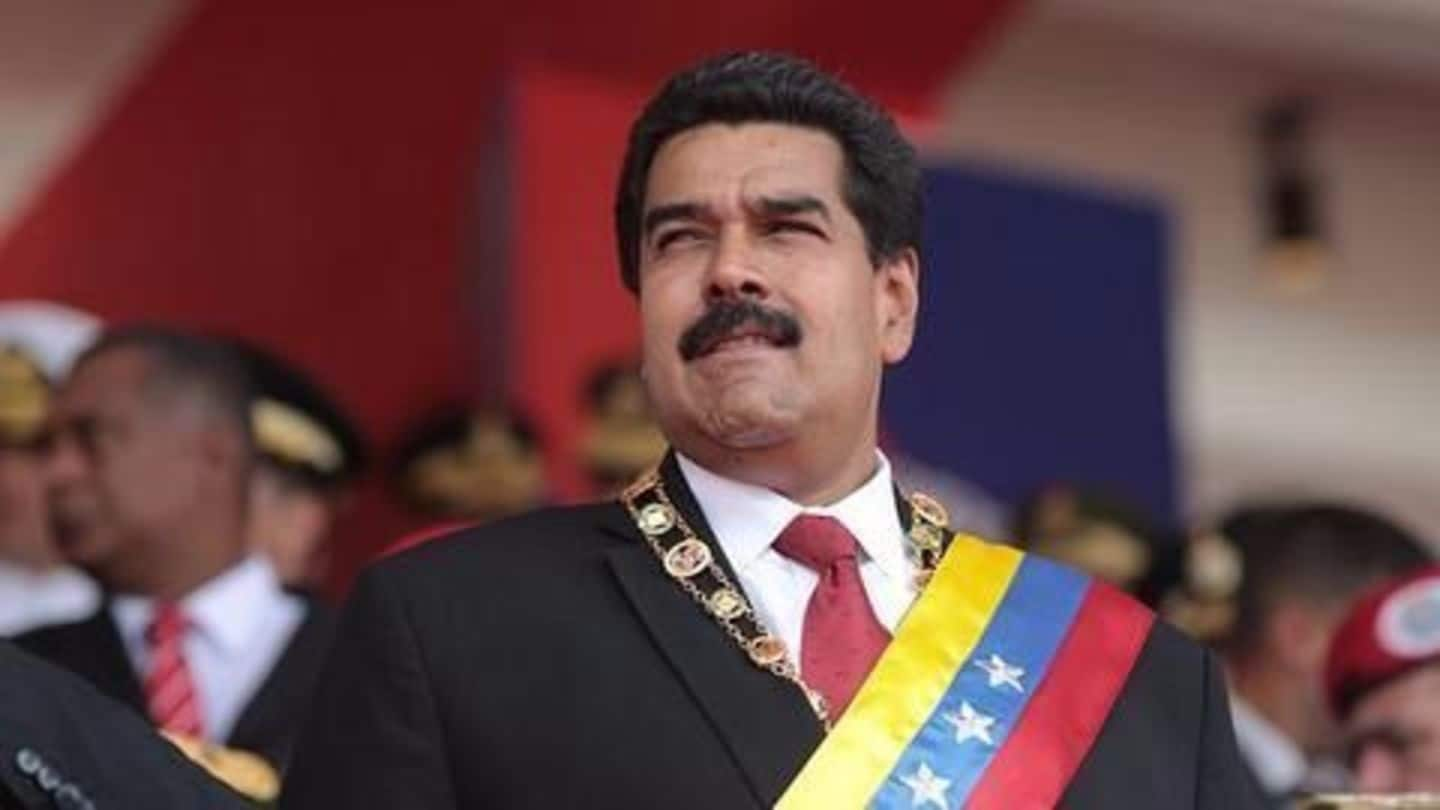
Venezuela defies US sanctions threat on constituent assembly election
What's the story
The Venezuelan government said it will hold a controversial constituent assembly election despite threats of US sanctions. The assembly would be empowered to bypass the opposition-controlled legislature and rewrite the country's constitution. US President Donald Trump had threatened to take "economic actions" if the constituent assembly vote proceeded. Trump also called Venezuelan President Nicolas Maduro "a bad leader who dreams of becoming a dictator."
Background
Roots of the crisis
Venezuela's primary source of income is from its vast oil reserves. The recent slump in oil prices compounded a pre-existent economic crisis which was precipitated by over-exploitation and corrupt practices in government sponsored social welfare schemes. Inflation in the country will soon touch 700% according to the IMF, and the economy is on the verge of collapse. Unemployment rates are also skyrocketing.
Quote
Trump warns "swift economic actions" against Venezuela
Trump warned that: "if the Maduro regime imposes its constituent assembly on July 30, the United States will take strong and swift economic actions." He didn't specify what the actions would be.
Details
Why the constituent assembly remains controversial
Trump's warning came hours after the Venezuelan opposition said 7.6 million citizens voted against the constituent assembly in an unofficial referendum. Maduro's government called the referendum results a "gigantic fraud." The opposition said Maduro wants to use the assembly to entrench himself to power. Maduro feels a new constitution would help promote dialogue in the polarized crisis-hit country.
International pressure
International pressure against the Maduro regime mounts
Maduro is facing mounting pressure from Colombia, France and Spain to drop his assembly plans. EU foreign policy chief Federica Mogherini warned it "risks further polarizing the country and increasing confrontation." Maduro responded by calling her "insolent," adding that Venezuela isn't an EU colony. Venezuela also banned the presidents of five former Latin American countries from entering the country to monitor the unofficial referendum.